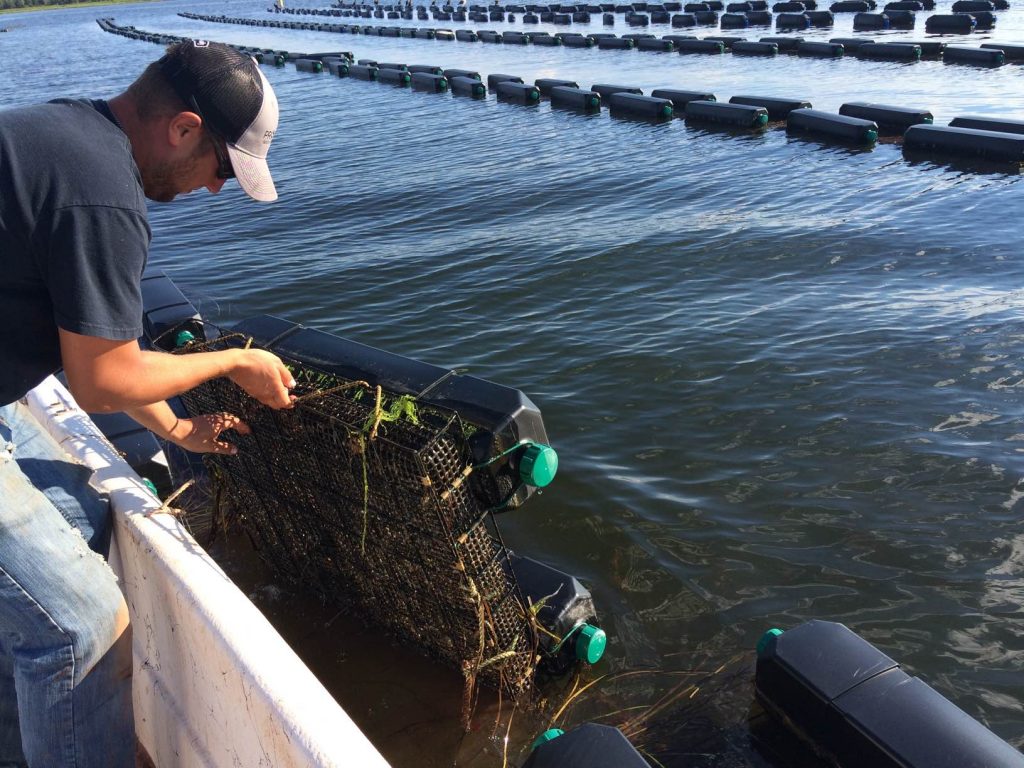
PEI shellfish farmers get help to find workers
June 8, 2021
By
Liza Mayer
 The misconception that the industry offers only seasonal jobs is one reason few people are applying, suggests an industry exec (Photo: OysterGro)
The misconception that the industry offers only seasonal jobs is one reason few people are applying, suggests an industry exec (Photo: OysterGro) Prince Edward Island’s aquaculture industry is thriving and eager to hire, but it struggles to find workers.
Its farmed mussel industry yields 50 million pounds annually, representing 80 per cent of mussel production in Canada. Jobs range from working aboard a boat, physically farming the sea, to quality assurance and research in a lab.
But the misconception as to what jobs are available may be discouraging people from applying, suggested Denna Keating, Director of Finance and Operations for the PEI Aquaculture Alliance.
She believes some issues with recruitment stem from a lack of understanding that full-time, year-round employment is available alongside seasonal work.
With the industry’s dire need to fill vacancies, it has become apparent that good old-fashioned “We’re Hiring” signs and word of mouth — which most employers have been relying on — won’t cut it.
“We need to look beyond our traditional pools of labour and expand how we’re advertising jobs. We also need to look at why some employees leave the industry and what we can do to make them want to stay,” says Keating.
So, in May, the PEI Aquaculture Alliance launched a plan to do just that. It hired a consultant to help develop a workforce strategy.
Some of the goals of the strategy would be to explore group benefits in order to enhance employers’ capacity to offer incentives; share best practices for recruitment; increase training and certification opportunities for employees; and create pilot projects to tackle some of the issues identified by employees as barriers to working in the industry, such as transportation and hours of work.
The Alliance is also in the process of forming a Workforce Steering Committee, for which it is looking for partners and interested industry participants.
“We’ve already begun meeting with potential partners and talking to industry groups about their training and recruitment needs,” said Keating. “We are waiting on potential funding, but this isn’t something we can allow to become stagnant. We want to do everything we can to help the aquaculture industry now and into the future.”





